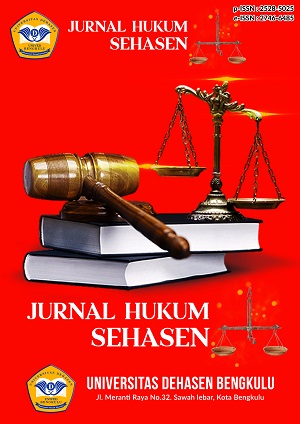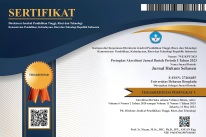The Aspect of Legal Protection for Consumers in E-Commerce Transactions: A Civil Law Perspective
Abstract
Online buying and selling transactions have now become one of the most favored methods due to the convenience, speed, and comfort they offer consumers. However, behind this convenience lie various potential risks that may harm consumers, such as fraud, goods that do not match their descriptions, or inadequate after-sales service. The Indonesian Civil Code (Kitab Undang-Undang Hukum Perdata/KUHPerdata), as one of the sources of written law in Indonesia, plays a significant role in providing legal protection for consumers. Although the Civil Code does not specifically regulate online buying and selling transactions, the general principles contained within it remain relevant and can be applied to protect consumer rights. For example, Article 1320 of the Civil Code, which outlines the legal requirements of an agreement, can be used to assess the validity of online transactions. Additionally, Article 1457 of the Civil Code, which defines a sale and purchase agreement, serves as the foundation for evaluating the legal relationship between the seller and the buyer. The type of research used in this legal study is normative legal research, also known as doctrinal legal research. This type of research relies heavily on literature review. The findings of this research show that Article 49 paragraph (1) of Government Regulation on Electronic Systems and Transactions (PP PSTE) emphasizes that business actors offering products through electronic systems are required to provide true, clear, and complete information regarding the products, the producers, and the terms and conditions of the contract. This information must be disclosed before the consumer makes a transaction, so the consumer can make an informed decision and is not harmed by misleading or incomplete information. Paragraph (2) of the same article further clarifies the obligation of business actors to provide clear and transparent information related to the offer of the contract. The Electronic Information and Transactions Law (ITE Law) represents one form of the government's responsibility and concern regarding the rapid development in the field of information and communication technology, especially related to the provision of information and transactions in electronic form. Online buying and selling is a form of contemporary muamalah (commercial transaction) that is permissible in Islam, as long as it fulfills the fundamental principles of a valid contract under sharia. Both the seller and the buyer must uphold ethics, information transparency, and fairness in the transaction. The DSN-MUI fatwa serves as an important reference to ensure that digital economic activities remain aligned with Islamic values.
Downloads
Copyright (c) 2025 Achmad Arismunandar, Abustan Abustan

This work is licensed under a Creative Commons Attribution-ShareAlike 4.0 International License.






